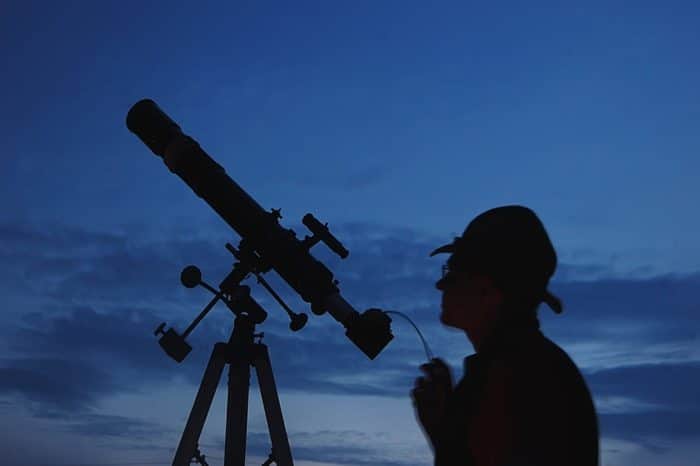Why We Love It
-
$110,220Potential Avg. Salary*
* Salary & growth data is based on the recent Bureau of Labor and Statistics data published at https://www.bls.gov/oes/current/oes192011.htm for 19-2011 Astronomers 11/2021. Based on national data, not school-specific information. Conditions in your area may vary.
If you excel in math and science classes and are interested in learning more about outer space, then a bachelor of science in astronomy and astrophysics may be the major for you.
Students in this degree program observe, analyze, and document the universe, its structure, and its inhabitants. Additionally, students learn to predict astronomical activity and determine why and how these activities occur.
What is a Degree in Astronomy & Astrophysics?
In an astronomy and astrophysics degree program, you’ll spend your time studying the universe: its stars, planets, solar systems, and galaxies. Students will be introduced to the tools and technology that are used to observe and study the universe and will learn how to operate those tools expertly before graduation.
Students also frequently choose to double-major when pursuing this degree, adding an engineering, computer science, or education major to broaden available career opportunities.
Most astronomy and astrophysics continue their education after earning a bachelor’s degree to earn master’s, doctoral, or professional degrees in the field. However, a graduate degree isn’t absolutely required to find work in the field.
Many astronomers find work with only a bachelor’s degree in planetariums, observatories, and museums. Some also work as research assistants. Those who earn graduate degrees find work as researchers for universities and government institutions like NASA.
Recommended Schools
What Courses Would I Take For a Major in Astronomy & Astrophysics?
- Advanced Astronomy
- Classical and Quantum Oscillations and Waves
- Electromagnetism and Thermodynamics
- Astrophysics
- General Relativity
- Classical Electrodynamics
- Electric and Magnetic Interactions
- Advanced Physics
What Jobs Can You Get with a Degree in Astronomy & Astrophysics?
Job prospects are bright for graduates of astronomy and astrophysics programs because of the variety of careers available to graduates. While NASA is the first opportunity that comes to everyone’s mind when it comes to space study, it’s by no means the only place astronomers can find work.
Many work in entertainment and education facilities like observatories, science museums, and planetariums. Others work as science teachers in schools, astronomy professors in colleges, and even science journalists.
How Long does it take?
A bachelors in Astronomy & Astrophysics will have a typical length of 4 years in a full time schedule. That said, there are many ways to speed up the timeframe by either taking more units via online coursework, community college, or taking free classes at OnlineDegree.com that could transfer to universities in the US.
Recommended Schools
Best Jobs for Astronomy & Astrophysics Degrees
With a bachelor’s degree in astronomy and astrophysics, you can find work as an educator in a planetarium, observatory, or science museum, or you can work under an experienced astrophysicist as a research assistant.
If you want to grow in your career, earn a master’s, doctoral, or professional degree to work for NASA, teach science to elementary, middle, and high schoolers, or get hired as an astronomy professor.
How to save time and money
Our mission is to help you to avoid paying full price for college. We want your Astronomy & Astrophysics degree to be affordable and accessible. Here’s how you could save:
Create Your Free SmartPlan

There are many ways to make college affordable and accessible.
That’s why we created a helpful tool called SmartPlan.
It’s free, and helps you find potential ways to save and tons of information about each school you’re considering
Think of it as your “college blueprint”, to help you instantly craft a path to your degree:
- Which Colleges Match Your Needs
- Ways You Could Save Time & Money
- Free Courses You Could Take for Credit
- Valuable Data and Insights on Each College
- Detailed Steps You Should Take!
See what’s possible for you and generate a free plan within just a few minutes
Create My SmartPlanYou Might also be Interested in
Many visitors who look for a degree in Astronomy & Astrophysics are also interested in the following degrees.












